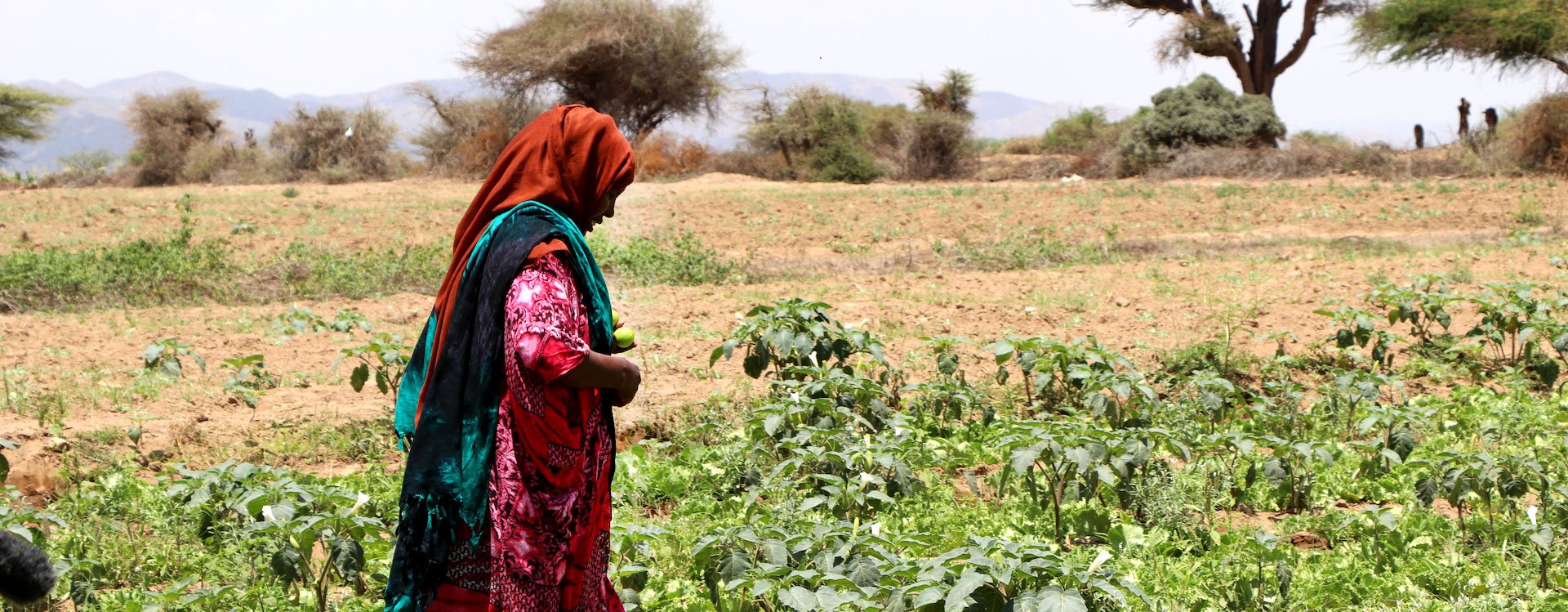
Ending hunger
Global agriculture produces enough food for everyone, but it is distributed extremely unequally. Yet, every human has the right to adequate, sufficient and healthy food. Welthungerhilfe places this human right to food at the centre of all its activities as we work towards the UN sustainable development goal of 'Zero Hunger by 2030'.
Hunger’s causes
Hunger and malnutrition are, above all, a consequence of poverty. Those families with insufficient money for food are not able to look after their own health nor invest in education for their children.
Hunger is most prevalent in remote regions of the world where people typically draw their food and livelihoods from the natural environment. Food security issues in rural communities are compounded by the threat of armed conflicts, natural disasters and climate change effects, such as long rain or droughts.
Countries with high levels of hunger are also often met with unfair trade conditions. High demand on the world market for food and agricultural raw products threatens the food and nutrition securityof rural families, many of whom can no longer afford healthy meals.
Inequality in these countries weakens the poorest citizens’ social standing and right to be heard, ultimately exacerbating hunger. On top of this, poor governance and corruption lead to obstacles to development such as land grabbing.
The consequences of hunger
There are more than 800 million people suffering from hunger globally while an estimated two billion are lacking essential vitamins and minerals – a form of malnutrition called hidden hunger. Hunger and malnutrition inhibit the overall development of regions, having major effects on efficiency and community health. The most vulnerable are the greatest victims of hunger, most commonly children.
Due to structural inequalities in traditional societies, women have little access to education or opportunities to earn a livelihood. Most do not have their own resources and frequently struggle with the double burden of farm work and raising children while a lack of knowledge about nutrition and hygiene issues increases risks to children’s health.
Access to sufficient nutritious food is vital for pregnant women, breast-feeding mothers, and children in their first 1000 days of life. Nutritional deficiencies weaken the immune system of children and can, in combination with general undernourishment, lead to physical disabilities and limited mental development for the rest of their lives.
Combatting the causes
Welthungerhilfe’s strategic focus is on achieving sustainable food and nutrition security for the most vulnerable. In close collaboration with local communities and partner organisations, our projects address failures in food and economic systems in order to eradicate. To achieve this goal we work with approaches such as site-specific agriculture: promoting cultivation methods and crops appropriate to local conditions and culture, strengthening resilience: better preparing communities for crises and disasters to reduce their impact, and strengthening civil society: amplifying the voices of marginalised people to demand their rights.
Approaching the end of hunger
Significant strides are being made towards eradicating hunger globally as we address its causes. Two hundred years ago almost nine out of ten people lived in absolute poverty; today it is one in ten. Welthungerhilfe’s annual Global Hunger Index reveals a decline in hunger levels in all countries surveyed over the last 15 years. In Africa for example, there has been an average decline of 30 percent. Finally, since Welthungerhilfe was founded more than 50 years ago, child mortality in the Global South has fallen from over 20 percent to less than 5 percent.
